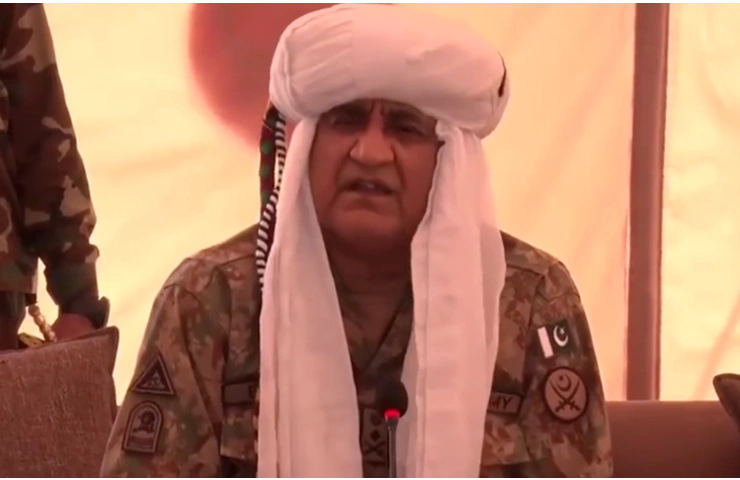Pakistan’s Chief of Army Staff (COAS) General Qamar Javed Bajwa visited Panjgur district of Balochistan on Saturday. This was his third visit to Balochistan in about a fortnight, proving that the Pakistani establishment is rattled by the frequency of Baloch attacks on the Frontier Corps (FC) troops.
The FC headquarters in Panjgur had been seized by Baloch fighters on 02 February for nearly three days, withstanding assaults by helicopter gunships, drones and armoured personnel carriers of the Pakistani army.
According to a statement by the Inter-Services Public Relations (ISPR)–Pakistani defence forces' public relations agency, General Bajwa took stock of the security situation in the area and addressed the troops. He was given a detailed update by the local commander on the security situation in the area and the response mechanism for effectively checking emerging threats,
Dawn reports that the army chief spoke with the troops and stressed on “breaking the link between terrorists and their support bases.” He also appreciated “professionalism and response” by the forces against the daring attacks by the Baloch nationalists.
Attacks on Pakistani troops by Baloch nationalists is not new, but the attacks this year have been powerful and deadly leading to a large number of casualties among Pakistani soldiers.
The first of such deadly attacks killed ten soldiers on January 28 in Kech district of Balochistan when Baloch nationalists attacked a checkpost close to the Iran border. They set it on fire and fled with the weapons of the slain troops.
The ferocity of the attack propelled General Bajwa to visit Kech and spend a day with the soldiers to boost their morale. Initially Pakistan tried to hide the Kech attack but later issued a statement blaming Iran for harbouring Baloch nationalists.
A few days later, the Baloch Liberation Army (BLA) launched twin attacks on the military headquarters in Panjgur and Noshki districts. The attack on the Noshki camp lasted nearly 20 hours while the one on Panjgur lasted 72 hours, leading to much turmoil within the Pakistani establishment.
The twin attacks prompted Prime Minister Imran Khan and General Bajwa to visit Noshki to boost the morale of security forces. The local press and social media handles have been reporting the low morale of Pakistani border troops after non-stop attacks. Unverified reports say that Pakistani soldiers even deserted their posts out of fear.
The government blamed India and Afghanistan for the daring Noshki and Panjgur attacks, saying the Baloch attackers were in touch with their Indian handlers.
Besides some of these daring and debilitating attacks, Pakistani forces in Balochistan have been under attack almost on a daily basis.
The Baloch community perceives Pakistan as an occupying force, alleging that Pakistan usurped it through military intervention after its independence from British rule. The Baloch also harbour strong feelings of social alienation and economic exploitation by the dominant sections of the Pakistani governing and military classes.
The volatile situation in Balochistan prompted the Pakistani army chief to make a third visit to strife-torn Balochistan.
The Balochistan Post also reports that the local authorities have refused to hand over the bodies of fighters involved in the attack on the FC headquarters in Noshki. The Balochistan Post says that the families of the attackers want to take the bodies to their native areas for burial but the Noshki administration has refused to hand them over.




















